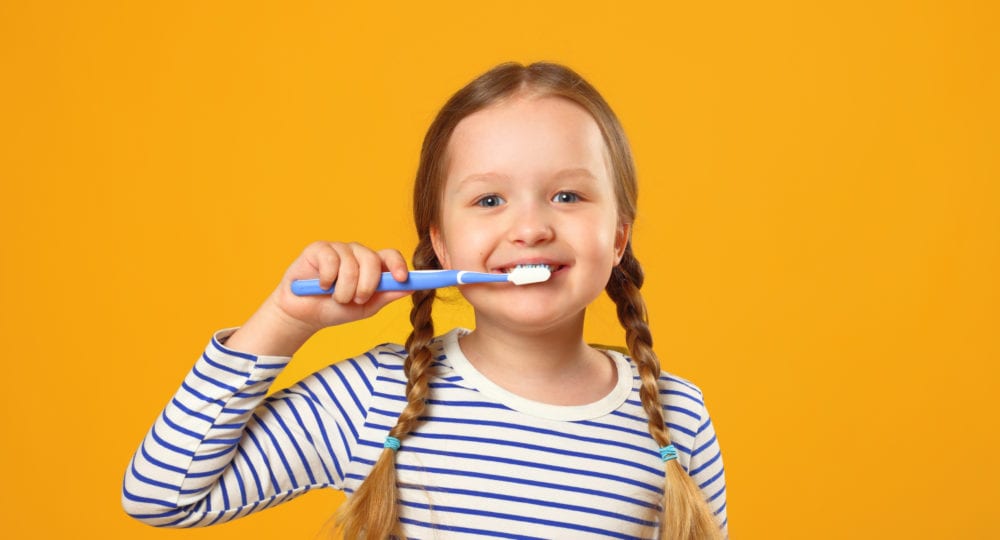Children’s Dental Health Month is recognized every February in order to promote good oral health and its many benefits.
Teeth begin to form in a baby during the second trimester of a pregnancy before the baby is even born. Even though the teeth can’t be seen, they are in the jaw, underneath the gums. Because of this, dental care should begin early, even before a baby’s first tooth appears.
According to the American Academy of Pediatrics (AAP), the number one dental problem among preschoolers is tooth decay (cavities). By age two, 10% of kids have one or more cavities, and that number increases to 50% by the age of five. Just because kids will lose their baby teeth, doesn’t mean that they don’t matter. Untreated, cavities can cause pain and infections. Furthermore, dental decay in baby teeth can negatively affect permanent teeth and lead to future dental problems.
Here are some basic guidelines for taking care of your child’s teeth:
- In infants, use a clean, damp washcloth over the gums to get rid of harmful bacteria
- As soon the child has a tooth, practice brushing twice a day with a smear (size of a grain of rice) of fluoride toothpaste on a child-sized toothbrush
- At the age of 3, you can start using a pea-sized amount of toothpaste and start teaching your child not to swallow the toothpaste
- Help your child brush until they have good brushing skills, and supervise kids younger than 8 when brushing, as they are likely to swallow toothpaste
- Limit the amount of sugar in your child’s diet. Especially avoid sticky sugars such as caramel, toffee, and gum, that are likely to stay on their teeth for hours
- Brush your child’s teeth after eating a sugary food
- Do not allow your child to have any juice or other sugar-containing liquid, especially in a sippy cup, for a prolonged period
- Check to see if your water contains fluoride. If it comes from a well or other non-fluorinated source, your child’s doctor or dentist may recommend a fluoride supplement
- Children should begin seeing a pediatric dentist for regular checkups by one year of age
—
Resources:
Centers for Disease Control and Prevention
Healthy Children from the American Academy of Pediatrics
Photo by Olga Nikiforova on iStock





